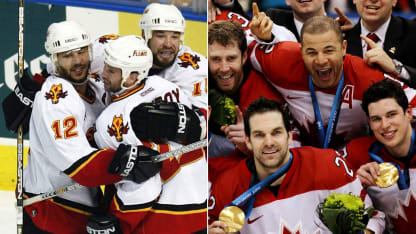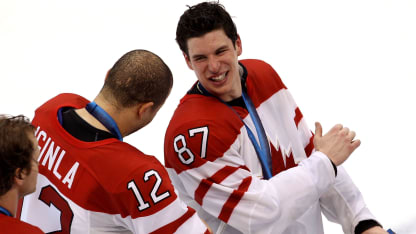The shift that personifies Iginla -- his heart, hustle, power, determination and skill -- happened at the end of Game 5 of the 2004 Stanley Cup Final against Tampa Bay.
This was Iginla's rampaging helmetless shift that led to Saprykin scoring in overtime to give the Flames a 3-2 win and a 3-2 lead in the best-of-7 series. They lost the next two games and the Stanley Cup, but let's focus on Iginla.
He creates the possession that leads to a scoring chance for himself. He loses his helmet behind the net. Calgary keeps possession and, of course, a helmetless Iginla goes to the front of the net. He darts to the corner, gets the puck, and attempts to set up another scoring chance.
Iginla later retrieves the puck on a backcheck, dishes it off, gets it back in the right circle, and rips a shot. The rebound pops out into the traffic, and Saprykin puts it in.
Nothing was stopping Iginla on this shift. The only thing he didn't do was score.



